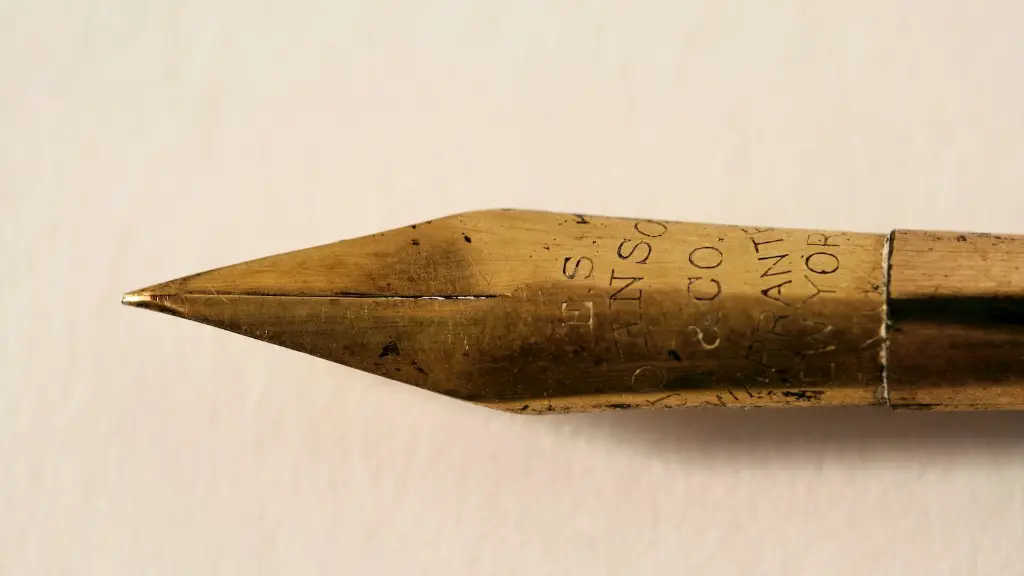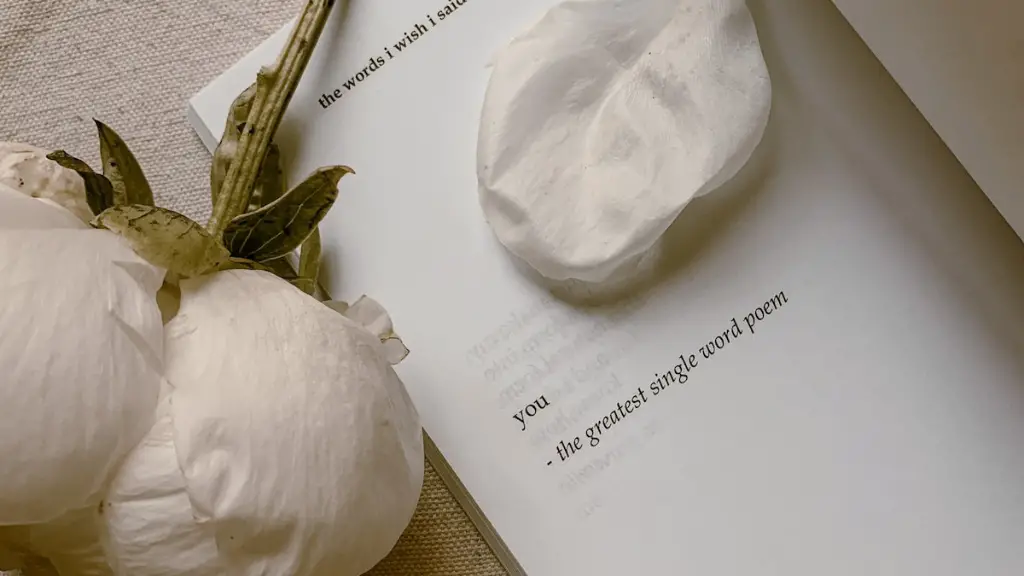Costs of Self-Publishing a Poetry Book
Many poets long to see their works published in a physical form, giving them a sense of pride and accomplishment. Self-publishing a poetry book can be a fulfilling endeavor for aspiring authors, however, it is important to consider the upfront costs incurred. A self-publishing platform typically charges a fee for providing the service and resources needed, such as a cover design, printing, and eBook conversion. Costs may also include ISBN registration, distribution to bookstores, registering legal copyrights, and other fees.
One of the biggest cost considerations that many poets overlook is the printing costs. It’s important to understand the different printing options available in order to choose the most economical option. Selling paperbacks can be expensive if you’re printing in small quantities, but most online self-publishing platforms offer options for cost-effective printing in large volumes. Bulk orders are also an option for poets who plan to sell their books in large quantities or to multiple retailers.
As for the cover design, there are a variety of options available. Basic packages often include a template-based cover design. Poets who are serious about marketing their book may want to invest in a professional cover design to ensure their book stands out in the crowd. This is often costly, but could be beneficial in the long-term.
Once the costs are sorted, it’s important to consider how to turn a profit on your work. To make a successful venture, you should have a plan for marketing your work and reaching your target audience. Poets should be aware that the self-publishing process does not necessarily guarantee sales, and authors should take into account the costs and time investment needed to build a base of readers.
Finding the Right Self-Publishing Platform
Self-publishing platforms such as Amazon’s Kindle Direct Publishing and IngramSpark are a great way for poets to get their work out without having to go through the traditional packaging of finding an agent or signing with a publisher. Both Amazon and IngramSpark offer easy-to-use platforms that allow authors to self-publish with minimal fuss.
When deciding whether to use Amazon’s Kindle Direct Publishing platform or IngramSpark, it’s important to consider your goals. Amazon is the world’s largest online retailer, and its Kindle platform makes it easy to reach a wide range of readers. Conversely, IngramSpark is better suited for those who want their work to reach physical bookstores, as it offers more options for printing and distribution.
Whichever platform poets decide to use, it is important to do research beforehand so that their goals and expectations can be met. Every platform has its advantages and disadvantages, so it is important to read reviews, speak to other poets who have self-published, and do research in order to make an informed decision.
Tips for Writing and Editing a Poetry Book
Once a self-publishing platform has been selected, the next step is to write and edit your book. Writing and editing takes time, skill, and effort, and poets should strive to create quality writing that their readers will appreciate.
When writing, it’s important to stay focused and avoid distraction. Poets should create an outline and specific goals for each poem they want to write. This will help ensure that the writing follows a logical structure and focuses on the main ideas. Additionally, poets should read their work aloud to ensure the flow of the poem and its rhythm feel natural.
When it comes to editing, poets should strive for clarity. This means sharpening ideas, cutting unnecessary words, and ensuring that language and imagery effectively convey the message. Additionally, it is important to fully proofread the work for grammar and spelling errors. Poets should enlist the help of friends or family members to read over the work and provide honest and constructive feedback.
Finally, poets should consider beta readers and online services that offer manuscript editing to ensure their work is top-notch. This can be costly, but is often worth it if the poet wants to make a lasting impression.
Marketing Strategies
Marketing is a necessary step in any self-publishing journey. Poets should plan a strategy ahead of time and think of ways to reach their target audience. Establishing an online presence is key in this day and age, so poets should create a website, join social media networks, and write blog posts about their process and upcoming book.
Participating in poetry readings or open mic events is a great way for poets to build an audience and get the word out about their book. Authors should seek out other poets and fellow authors to network, collaborate on projects, and offer advice or support. Finally, authors should reach out to bookstores or literary publications that may be interested in carrying or writing about their work.
Successfully marketing a self-published book also requires creativity and experimentation. The most successful strategies depend on a particular author’s goals, resources, and audience. It is important to track the results of each strategy and adjust as needed.
Investing in Professional Services
Self-publishing a poetry book can be a daunting endeavor. Don’t forget that there are professionals who are willing to offer assistance. Companies that specialize in self-publishing can help you with the editing and design of your book, and can provide valuable information on digital and print marketing.
Likewise, there are a number of services available to help you with the formatting of your eBook and to ensure that it is compatible with different platforms. Additionally, hiring a copy editor is a great way to ensure that your book is critically analyzed and any potential errors are addressed.
Finally, it is important to remember that the self-publishing process does not end after the book is published. Poets should continually strive to build their audience and find new ways to promote their work. This may involve attending literary festivals, local bookstores, or looking into other forms of marketing such as podcasts or radio shows.
Conclusion
Self-publishing a poetry book can be a rewarding experience, and authors should take the time to research and plan the process in advance. Upfront costs should be considered and professionals should be enlisted for assistance. Writers should also stay focused on their goals, strive for clarity and excellence in their work, and actively market their work in order to reach their intended readers.




